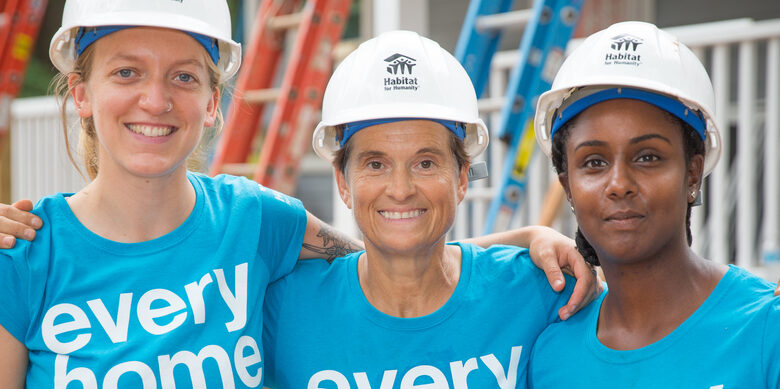By Andrew Szalay, Habitat Executive Director
What is it that makes Habitat for Humanity great?
When people think of Habitat for Humanity as one of the most successful nonprofits of all time, it is not because of building homes alone. In fact, if we only took our affordable homeownership program into account, our mission might appear costly or inefficient at first glance. The lives we change–each individual in each house–is at the heart of what we do, but it’s difficult to measure. However, there is another equally critical component of our mission that gets to the heart of who we are and how we gauge our success. And it’s measurable.
for Humanity as one of the most successful nonprofits of all time, it is not because of building homes alone. In fact, if we only took our affordable homeownership program into account, our mission might appear costly or inefficient at first glance. The lives we change–each individual in each house–is at the heart of what we do, but it’s difficult to measure. However, there is another equally critical component of our mission that gets to the heart of who we are and how we gauge our success. And it’s measurable.
It’s our volunteer program.
Leslie Crutchfield and Heather McLeod Grant wrote a landmark book on running nonprofits in 2008 titled Forces for Good: The Six Practices of High-Impact Nonprofits. In it, they revealed how nonprofits were different than for-profits for the first time. Until then, it was believed that great nonprofits should be measured by the same indicators of great businesses, such as having enormous budgets and world-class mission statements. The unique characteristic for Habitat for Humanity, according to Crutchfield and McLeod, and what sets it apart from others in its field, is the evangelists. In Habitat’s case, thousands and thousands of volunteers.
Our community of Habitat volunteers builds houses, operates ReStore, makes our organization run, and carries our message of hope to everyone they know. They help create a movement that inspires others to follow and, consequently, make an even bigger difference in our community.
Volunteers are the very core of Habitat for Humanity. And for this National Volunteer Week, the Board of Directors of Lancaster Lebanon Habitat for Humanity and I are humbled and proud to create opportunities for our volunteers to shine! To every Habitat Volunteer we say, “Thank you!”

